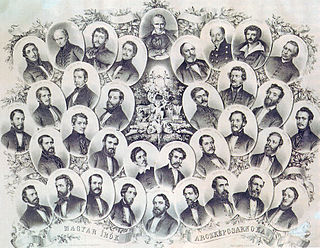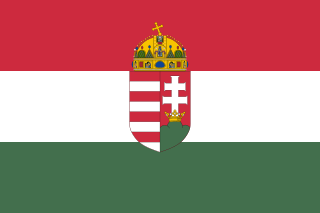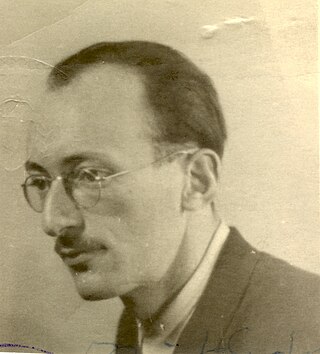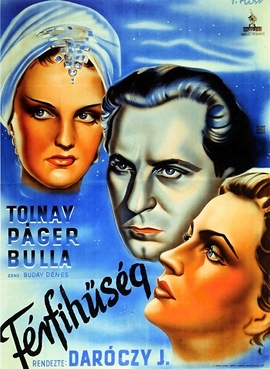
Hungarian literature is the body of written works primarily produced in Hungarian, and may also include works written in other languages, either produced by Hungarians or having topics which are closely related to Hungarian culture. While it was less known in the English-speaking world for centuries, Hungary's literature gained renown in the 19th and 20th centuries, thanks to a new wave of internationally accessible writers like Mór Jókai, Antal Szerb, Sándor Márai, Imre Kertész and Magda Szabó.

Kujula Kadphises was a Kushan prince who united the Yuezhi confederation in Bactria during the 1st century CE, and became the first Kushan emperor. According to the Rabatak inscription, he was the great grandfather of Kanishka I. He is considered the founder of the Kushan Empire.

The Scythian languages are a group of Eastern Iranic languages of the classical and late antique period, spoken in a vast region of Eurasia by the populations belonging to the Scythian cultures and their descendants. The dominant ethnic groups among the Scythian-speakers were nomadic pastoralists of Central Asia and the Pontic–Caspian steppe. Fragments of their speech known from inscriptions and words quoted in ancient authors as well as analysis of their names indicate that it was an Indo-European language, more specifically from the Iranic group of Indo-Iranic languages.

Chronica Hungarorum, also known as the Thuróczy Chronicle, is the title of a 15th-century Latin-language Hungarian chronicle written by Johannes de Thurocz by compiling several earlier works in 1488. It served as the primary source for the history of medieval Hungary for centuries.

Victor Varconi was a Hungarian actor who initially found success in his native country, as well as in Germany and Austria, in silent films, before relocating to the United States, where he continued to appear in films throughout the sound era. He also appeared in British and Italian films.

Kangju was the Chinese name of a kingdom in Central Asia during the first half of the first millennium CE. The name Kangju is now generally regarded as a variant or mutated form of the name Sogdiana. According to contemporaneous Chinese sources, Kangju was the second most powerful state in Transoxiana, after the Yuezhi. Its people, known in Chinese as the Kāng (康), were evidently of Indo-European origins, spoke an Eastern Iranian language, and had a semi-nomadic way of life. The Sogdians may have been the same people as those of Kangju and closely related to the Sakas, or other Iranian groups such as the Asii.

The Hungary national handball team is administered by the Hungarian Handball Federation.

The Kingdom of Hungary competed at the 1936 Summer Olympics in Berlin, Germany. 216 competitors, 197 men and 19 women, took part in 104 events in 21 sports.

The Issyk inscription is a yet undeciphered text, possibly in the Kushan script, found in 1969 on a silver bowl in Issyk kurgan in Kazakhstan, dated at approximately the 4th century BC. The context of the burial gifts indicates that it may belong to Saka tribes.

Tamás László Fellegi is a Hungarian politician, jurist, political scientist, businessman, who served as Minister of National Development in Viktor Orbán's government from May 29, 2010 to December 14, 2011. After that he was a minister without portfolio in Orbán II Cabinet. Between 1996 and 2000 Sectoral Director, then CEE of Legal and Governmental Affairs of Hungarian Telecom. Currently, he is Managing Partner of EuroAtlantic Solutions, an international consultancy firm. In 2013, EuroAtlantic Solutions joined the Prime Policy Group consortium and registered as a foreign agent at the U.S. Department of Justice under the Foreign Agent Registration Act for its US-based activities political activities carried out on behalf of the Hungarian government. Fellegi also serves as president of the Hungary Initiatives Foundation, a foundation created in November 2013 at the order Hungary's Prime Minister Viktor Orbán.
The Bulaqs were a Turkic tribe known mainly from Arabic sources, originating from the Lop Nor region. They were a core part of the Karluk confederacy located in the Altai Mountains. Many of them migrated to the Southern Ural, into the neighbourhood of the Volga Bulgars and Magna Hungaria Hungarians. Eventually, they were conquered by the Tsardom of Russia in the late 16th century, whom their last record is from.

Endre Bíró was a Hungarian biochemist whose research findings in the biochemistry of the muscle and muscle contraction found international recognition.

The Galileo Circle was an atheist-materialist student organization that functioned in Budapest between 1908 and 1919. Their center was located at the Anker Köz in Terézváros, Budapest. The circle had several subgroups with four different world views: the radical liberals, the Marxists, the anarcho-syndicalists and the socialists. However they had common goals, which included the protection of free scientific research and thinking at universities, the cultivation of social sciences, the social assistance of poor students, the spread of anti-clericalist and atheist views, the support of anti-nationalism and promoting internationalism, the propagation of anti-alcoholism, the opposition to large estates and the "reorientation of Hungarian social perception".

The Faculty of Humanities is the oldest faculty of Eötvös Loránd University in Józsefváros, Budapest, Hungary. It was founded by the Cardinal Archbishop of Esztergom Prince Primate of Hungary, Péter Pázmány, in 1635.

The Faculty of Law of Eötvös Loránd University was founded in 1667 and it is located in Egyetem tér in Belváros-Lipótváros, Budapest, Hungary.
All Men Are Crazy is a 1937 Hungarian comedy film directed by Viktor Gertler and starring Mária Lázár, Pál Jávor, Piroska Vaszary and Antal Páger. It was shot at the Hunnia Studios in Budapest. The film's sets were designed by the art director Márton Vincze.

Male Fidelity is a 1942 Hungarian drama film directed by József Daróczy and starring Antal Páger, Klári Tolnay and Elma Bulla. It was shot at the Hunnia Studios in Budapest. The film's sets were designed by the art director László Dudás.















